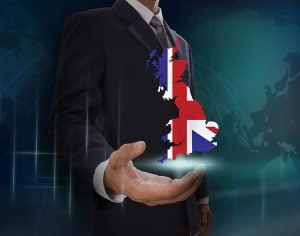The results of this summer’s General Election will be closely watched by the nation’s 5.5 million small businesses. This major section of the economy not only represents 99% of UK business, but also brings immeasurable value to the UK economy and society.
It is imperative that the next Government puts small businesses at the heart of its strategy for the country, with policies that enable them to drive growth for the UK.
Growth is a term that is used a lot. But we need to see a greater focus on ‘good growth’, which is sustainable, fair, and inclusive.
In the midst of a tough economic period, some entrepreneurs are still reeling. Many desperately want to see a period of stronger growth, confidence and optimism, with positive policies that empower them to reach their full potential.
While stability is certainly hard for any political party to guarantee–uncertainty is part of life now and we must all be prepared to react and adapt—I believe there are three core areas that a future government needs to focus on to drive a strong and more prosperous future for small businesses and the wider UK.
Firstly, we need to see greater Government leadership on the environment and business sustainability, to match the passion small businesses have on this issue, and the impact they can make.
Secondly, we want to see a real drive to boost inclusion and accessibility in entrepreneurship – particularly for disabled founders and other marginalised entrepreneurial groups – recognising that a vibrant small business economy is needed for the country to thrive.
And finally, we want to see improved access to finance to supercharge all of these areas.
Small business, green growth
Leadership from Government and big business is urgently needed to solve the major challenges that small businesses, and the wider world, are going to face due to climate change.
Research that we did in partnership with BT earlier this year – the ‘Small Business, Green Growth’ report—found small business owners are more than willing to drive sustainability efforts, but they lack access to support and education on where to start. Four in five (80%) said they want to reduce their emissions, but fewer than 2% said they had significant resources to do that.
This is significant—small firms represent almost half of UK business emissions and play a key role in driving green growth and helping the UK meet its goal of getting to net zero by 2050. [1] Entrepreneurs also need better access to finance to fund sustainable innovation and adaptations, which can be difficult to fund independently.
But financing isn’t the only barrier—the next government must also boost green skills and knowledge. Entrepreneurs are among the most passionate about going green, but so many lack direction.
On the back of this we have also recently launched a new free, six-week ‘Sustainability for Small Business’ training programme in partnership with BT, delivered entirely free and online to be fully accessible for everyone.
Entrepreneurship for all
For a thriving economy and equitable society, the next government must also actively encourage entrepreneurial inclusion, through targeted interventions for marginalised entrepreneurial groups to ensure anyone aspiring to start or scale a business has a fair chance.
In the past year, through spearheading The Lilac Review, we have seen just what kind of gap needs to be bridged here.
The Lilac Review is an independent Review which aims to address and overcome the barriers facing the nation’s disabled entrepreneurs (who represent 25% of the UK’s 5.5m small business owners, but account for just 8.6% of business turnover). After months of extensive research and submission of evidence – including 18 focus groups with over 100 disabled entrepreneurs – the Review launched its Interim Report, which identified the major barriers which need to be radically overhauled for millions of disabled founders across the UK to flourish.
With so much momentum already, and potential to create positive change, we want to see the next government commit to ambitious support for The Lilac Review and its interim recommendations, especially around more accessible support services and the removal of the ‘burden of proof of disability’ for lifelong conditions, among others.
And more broadly, despite a growing contingent of female founders, women are still under-represented in business ownership. So greater support for the ecosystem of female founders will be extremely important. We want to see an increase in the representation of female founders from 20% of entrepreneurs to 48%, in line with the working population.
Access to finance
Finally, accessing finance continues to be a key priority for entrepreneurs. All too often small firms can struggle to access finance to scale up and grow. The next government must improve access to finance to super-charge small firms to not only start up but scale up too. This should include more government-backed policies focused on micro-lending and scale-up, as well as smarter and more inclusive investment for marginalised groups, who need targeted, and accessible support to financing.
In particular, we want to see Government commit to continue driving forward the Disability Finance Code for Entrepreneurship, launched prior to the election, and delivered by The Lilac Review Steering Board, the British Business Bank, UK Finance and Small Business Britain, with commitment from Lloyds Bank, NatWest, Barclays and HSBC UK.
We are also asking that the Invest in Women Taskforce be enhanced to include microfinance – as well as addressing some of the broader, systemic issues around financial understanding and confidence that can sometimes particularly affect women.
As political parties release their manifestos, we hope to see the UK’s small businesses rise up to the top of the conversation, being placed at the heart of the vision for the UK.
[1] ‘Smaller businesses and the transition to net zero’, British Business Bank, 2021
Share via:









































